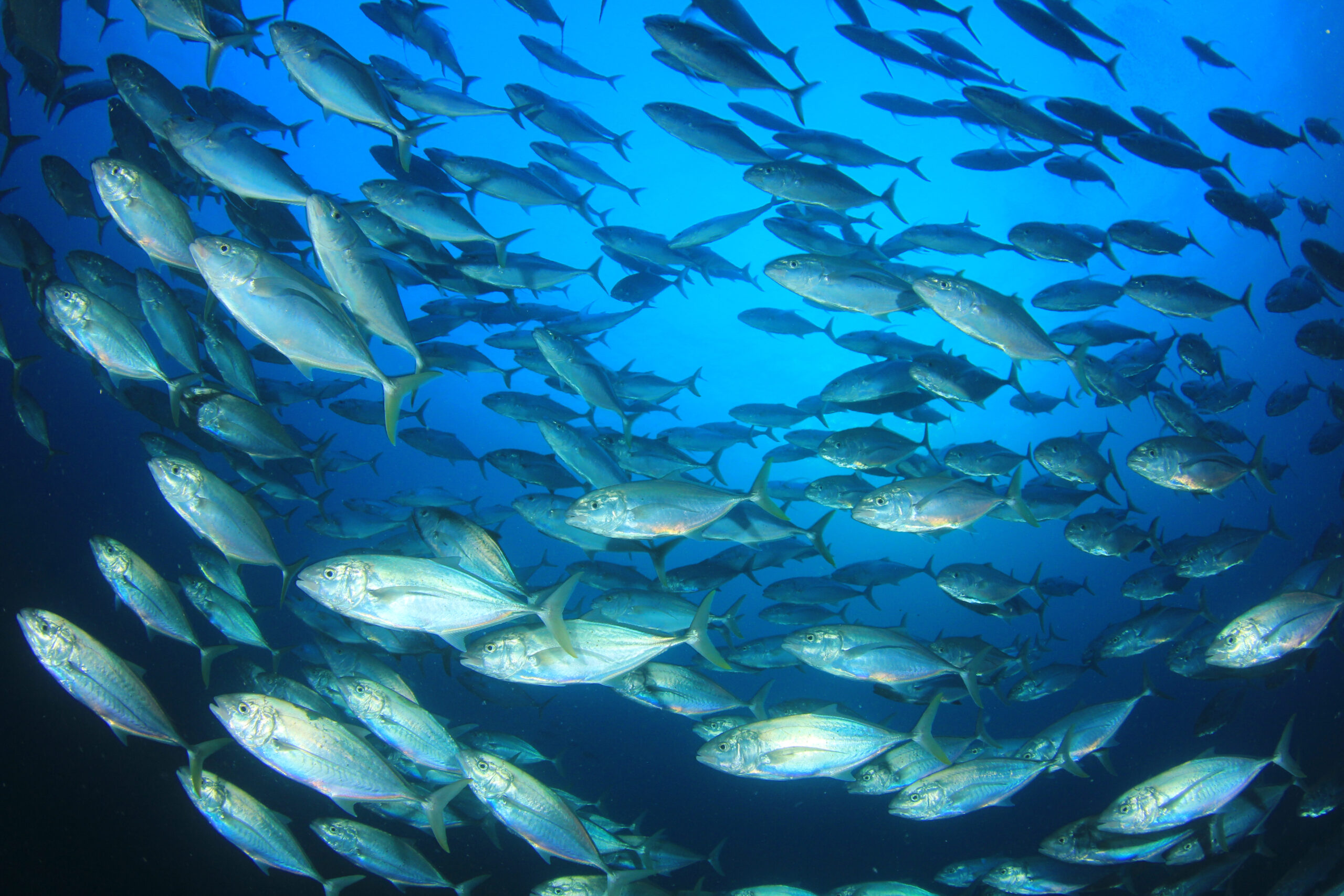
The sea is a precious resource, an ecosystem that is not only a source of life in itself, but that also plays a fundamental role in the survival of life on Earth. Precisely for this reason, its protection and the safeguarding of the species that populate it must be a priority for everyone.
On the occasion of World Tuna Day, our brand Rio Mare reaffirms the importance of sustainable fishing and its commitment to safeguarding tuna stocks, the oceans, and their biodiversity.
The tuna supply chain is one of the longest and most complex in the food sector, as it involves a great number of players from various parts of the world, including developing countries. Rio Mare has been committed for years to an increasingly sustainable sourcing of raw materials (since 2016, a partnership with WWF Italy and WWF International has been active), to the development of sustainable fishing supply chains, to the promotion of actions to fight illegal fishing and reduce bycatch, and to the protection of the marine ecosystem.


Sustainable fishing is a demanding challenge, but it is possible. Today 87% of tuna stocks are in good health, according to the International Seafood Sustainability Foundation – a global non-profit organization committed to the sustainability of tuna stocks, the reduction of bycatch and the health of the marine ecosystem, which brings together the most influential scientists, marine biologists and various NGOs, and which has Rio Mare as one of its founding members. This is also the result of the organization’s activism, which develops and dictates conservation measures that member companies must comply with, such as those to grant the traceability of boats and the presence of observers onboard, those to implement compulsory training for crews on proper fishing techniques, and those to fight illegal fishing and reduce bycatch – which, in the case of tuna, represents on average 5% of the total catch, almost all of which concerns species not at risk of extinction (Source: ISSF).
Rio Mare’s commitment to fighting bycatch is also demonstrated by its adhesion to the Dolphin Safe program, whose trademark certifies – since the 1990s – tuna caught without killing or endangering dolphins. This certification made it possible to reduce the mortality rate of dolphins around the world by over 95%, saving more than 100,000 specimens each year, thanks to strict controls and the presence of supervisors who inspect ships, warehouses, and canning companies. Rio Mare adhered to Dolphin Safe in 1992, confirming its commitment to never use tuna coming from boats that do not comply with the program.
In addition, the company has worked in collaboration with the Spanish technology center AZTI to develop and test on its fishing vessels a pioneering device to reduce accidental fishing of vulnerable species such as small sharks or turtles. This device, called “hopper“, allows rapid identification of the species accidentally caught in the nets and their immediate release into the sea, thus avoiding manipulation by the crews and ensuring greater safety on board and less stress for the animals, an essential condition for their survival. The data collected so far is very encouraging, as it shows that, thanks to this ramp, more than 95% of sharks caught accidentally can be released quickly and directly into the sea.
“We believe that companies are not only economic entities but also have an environmental and social responsibility: they must have a responsible attitude, make commitments on sustainability and set a good example. And this is even more true for food companies, since they live thanks to the generosity of nature, and it is, therefore, their duty to safeguard it”, commented Luciano Pirovano, Global Sustainable Development Director of our Food Business Unit. “We at Bolton Group have been committed for years to increasingly sustainable fishing practices. This also means taking concrete actions against bycatch and illegal fishing. We act to protect the entire supply chain thanks to transformative, global and credible partnerships with which we are writing new standards of sustainability: environmental sustainability together with WWF for more sustainable fishing practices and the preservation of the Oceans, and social responsibility together with Oxfam for the protection of human rights along the supply chain. Promoting pioneering projects such as the “hopper”, which will mark another step forward in the world of purse seine fishing, is a further step in our commitment to protect the oceans and their resources”.






 back
back



